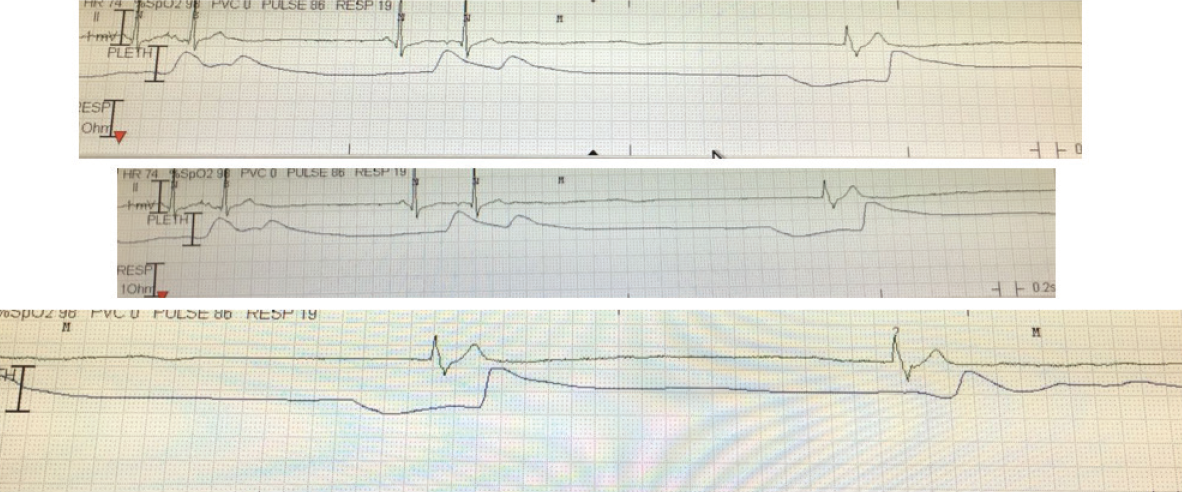A 78-year-old man presented to the emergency department with recurrent episodes of syncope precipitated by a variety of strong aromas. He denied chest pain, breathlessness or palpitations. There were no headaches, no blurred vision or limb weakness or seizure-like activity. On recovery, he had no post-ictal symptoms. He was initially discharged after initial investigations, including electrocardiogram (ECG), were normal. On the way to the main entrance, while passing cleaning equipment (which included strongly smelling bleach), he experienced a further syncopal episode. He was taken into the resuscitation bay, attached to cardiac monitoring and referred to the medical on-call team. When approached by the medical registrar on call (who was wearing ‘powerful’ aftershave), the patient commented the scent was precipitating a further attack. The registrar reviewed the cardiac monitor captured in figure 1 and witnessed a prolonged pause followed by asystole. Cardiopulmonary resuscitation (CPR) was commenced for approximately one minute, at which point there was a spontaneous recovery of cardiac output and a quick recovery to baseline.

The patient was transferred to the cardiac unit for further monitoring and underwent a dual-chamber permanent pacemaker implantation (DDDR) the following day. The patient made a full clinical recovery and experienced no further events prior to discharge.
This case illustrates the significance of powerful aroma as a potential precipitant for syncope and falls within the umbrella term of ‘neurocardiogenic syncope’.1,2 Our medical registrar has refined his use of aftershave in the light of this case!
Conflicts of interest
None declared.
Funding
No external funding.
Consent
Patient consent was obtained for publication.
References
1. Chen-Scarabelli C, Scarabelli TM. Neurocardiogenic syncope. BMJ 2004;329:336–41. https://doi.org/10.1136/bmj.329.7461.336
2. Brignole M. Neurally-mediated syncope. Ital Heart J 2005;6:249–55. Available from: https://www.federcardio.it/pdf/2005/03/20050053.pdf
